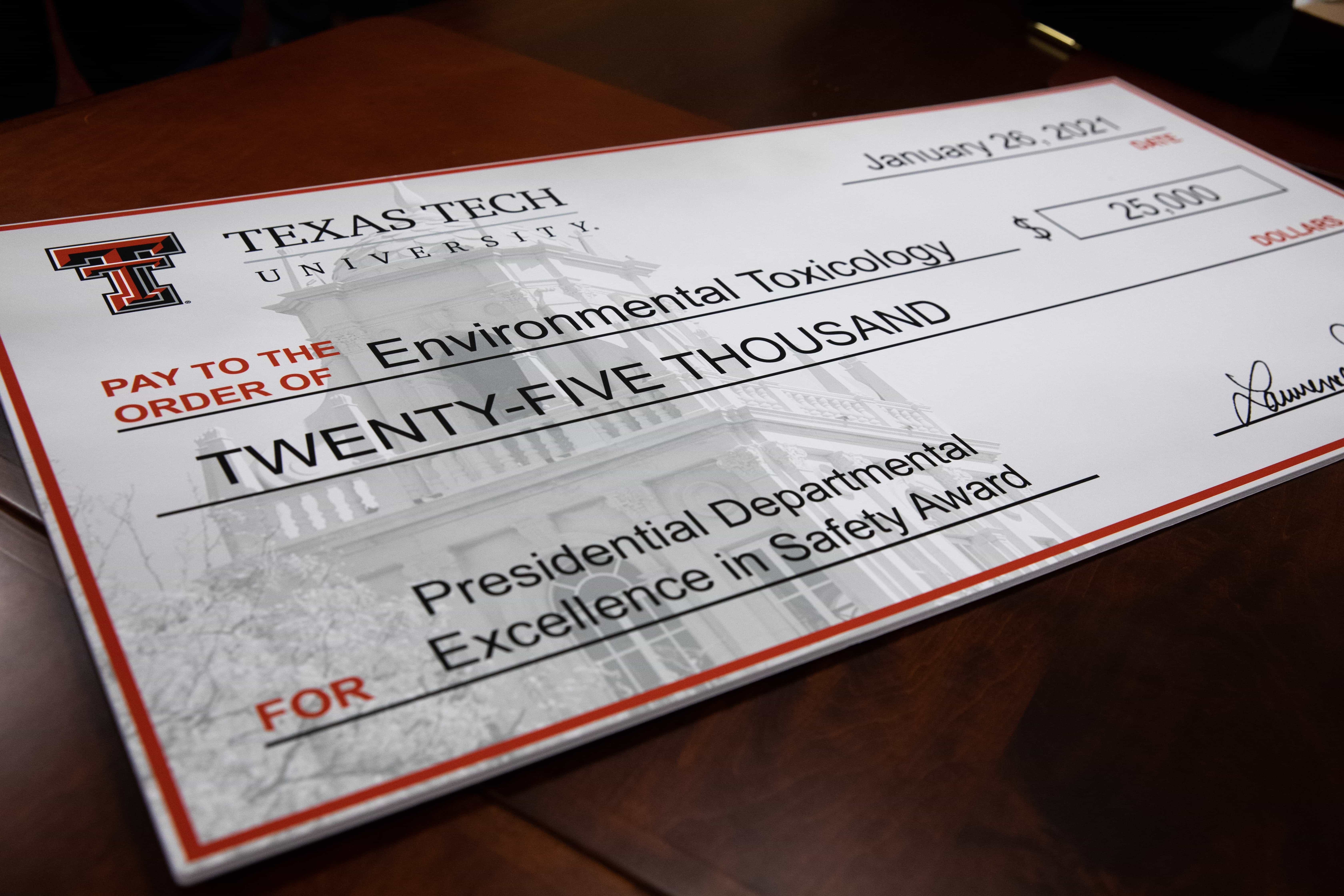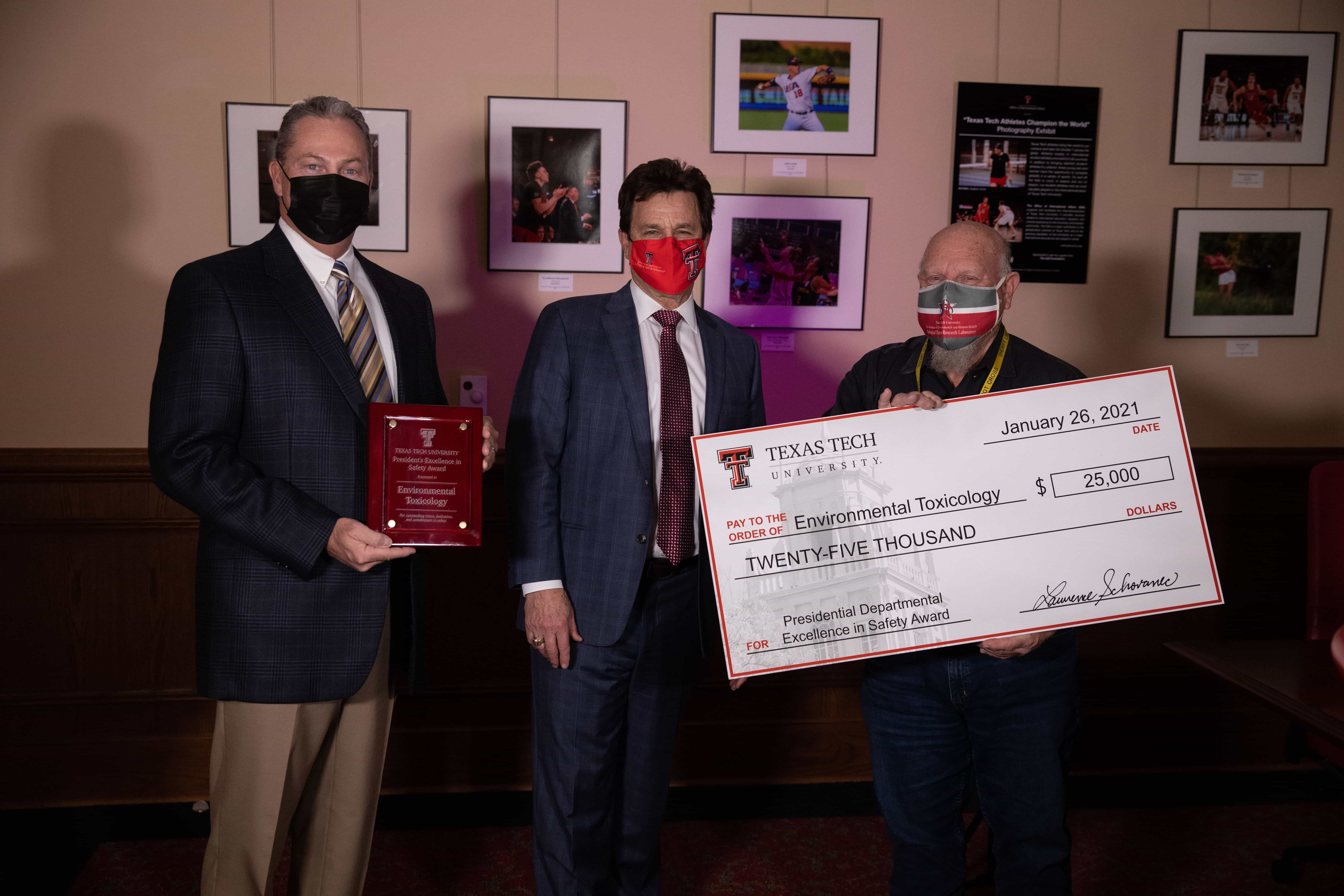Environmental Toxicology Receives First Presidential Excellence in Safety Award
The President's Departmental Excellence in Safety Award is an annual award given to a department or similar academic unit to recognize excellence in safety in research, scholarly and creative activity, and teaching. Safety excellence encompasses departmental programs designed to mitigate chemical, physical, and/or biological hazards associated with research and teaching areas where departments have gone above and beyond to ensure the validity of research and the well-being of researchers and students.
The award consists of a $25,000 fund to the department to further enhance its safety mission. Proposed use of the funds is a critical component of the application process.

About the 2019 Recipient
The Department of Environmental Toxicology (ENTX) is the academic home for core faculty of the Institute of Environmental and Human Health (TIEHH) and the Institute for Forensic Science (IFS). TIEHH and IFS provide faculty and students opportunities for multidisciplinary research and scholarly engagement related to environmental, forensic and human health sciences.
Since its inception in 1997, TIEHH has demonstrated its unwavering commitment to safety and compliance. As a result, ENTX has generated a culture that integrates safety and compliance in all research, teaching and outreach endeavors.
The plan for award fund distribution was derived from the department's goal to enhance the safety and compliance culture within our department and provide a framework for optimal workplace best practice guidelines.

Left to right: Phil Smith, Associate Professor in Environmental Toxicology, President Lawrence Schovanec, and Gary Reid, Departmental Safety Officer in Environmental Toxicology
Funding Impact
The Department of Environmental Toxicology used the award funding to:
- purchase a new emergency radio system to better facilitate communication during field operations
- purchase CPR manikins and equipment to faciliate in-house First Aid and CPR certification
- purchase three additional AEDs for the department's research buildings
- purchase needed gas cylinder storage cabinets, stands, and wall mounts
Environmental Health & Safety
-
Address
Texas Tech University, 407 Flint Ave, Lubbock, TX 79409 (Mail Stop 1090) -
Phone
806.742.3876 -
Email
safety@ttu.edu
